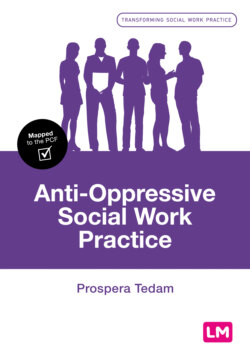Читать книгу Anti-Oppressive Social Work Practice - Prospera Tedam - Страница 59
На сайте Литреса книга снята с продажи.
What is power?
ОглавлениеIn simple terms, ‘power’ refers to the possession of influence, authority or control over others or circumstances. This influence, authority or control can be used in ways that are consistent with social work values and social justice, or as a means of oppression.
There appear to be two main discourses around power – one discourse that sees power as a relational entity between and among two or more people. The second assumption is the one advocated by Foucault that sees power as operating within social relations at the most micro level. This suggests that power is not possessed but rather exercised; power is productive and repressive, and finally that power comes from the bottom up. These ideas of power by Foucault are useful in that they emphasise that power is not something that people own, but rather something that is created through social interactions and used in different settings and situations (Fook, 2012). Power is the ability to make decisions over and above other people.
Social work practitioners require clear and effective strategies of dealing with the consequences of power and not just the power itself. Smith (2010) argues that it is important to embed issues of power in practice and not to leave it as a secondary issue when the practitioner finds time in their busy schedule. In this regard Foucault (1998, p93) articulates the
omnipresence of power: not because it has the privilege of consolidating everything under its invincible unity, but because it is produced from one moment to the next, at every point, or rather in every relation from one point to another. Power is everywhere; not because it embraces everything, but because it comes from everywhere.
